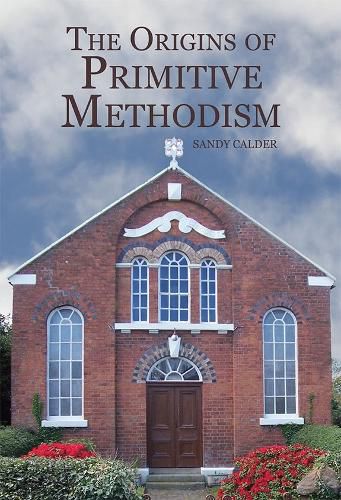Readings Newsletter
Become a Readings Member to make your shopping experience even easier.
Sign in or sign up for free!
You’re not far away from qualifying for FREE standard shipping within Australia
You’ve qualified for FREE standard shipping within Australia
The cart is loading…






This book shows that while the Primitive Methodist Connexion’s mature social character was working-class, this did not reflect its social origins. It was never the church of the working class, the great majority of whose churchgoers went elsewhere: rather it was the church whose commitment to its emotional witness was increasingly incompatible with middle-class pretensions. Sandy Calder shows that the Primitive Methodist Connexion was a religious movementled by a fairly prosperous elite of middle-class preachers and lay officials appealing to a respectable working-class constituency. This reality has been obscured by the movement’s self-image as a persecuted community of humble Christians, an image crafted by Hugh Bourne, and accepted by later historians, whether Methodists with a denominational agenda to promote or scholars in search of working-class radicals. Primitive Methodists exaggerated their hardships and deliberately under-played their social status and financial success. Primitive Methodism in the later nineteenth and early twentieth centuries became the victim of its own founding mythology, because the legend of a community of persecuted outcasts, concealing its actual respectability, deterred potential recruits.
SANDY CALDER graduated with a PhD in Religious Studies from the Open University and has previously worked in the private sector.
$9.00 standard shipping within Australia
FREE standard shipping within Australia for orders over $100.00
Express & International shipping calculated at checkout
This book shows that while the Primitive Methodist Connexion’s mature social character was working-class, this did not reflect its social origins. It was never the church of the working class, the great majority of whose churchgoers went elsewhere: rather it was the church whose commitment to its emotional witness was increasingly incompatible with middle-class pretensions. Sandy Calder shows that the Primitive Methodist Connexion was a religious movementled by a fairly prosperous elite of middle-class preachers and lay officials appealing to a respectable working-class constituency. This reality has been obscured by the movement’s self-image as a persecuted community of humble Christians, an image crafted by Hugh Bourne, and accepted by later historians, whether Methodists with a denominational agenda to promote or scholars in search of working-class radicals. Primitive Methodists exaggerated their hardships and deliberately under-played their social status and financial success. Primitive Methodism in the later nineteenth and early twentieth centuries became the victim of its own founding mythology, because the legend of a community of persecuted outcasts, concealing its actual respectability, deterred potential recruits.
SANDY CALDER graduated with a PhD in Religious Studies from the Open University and has previously worked in the private sector.